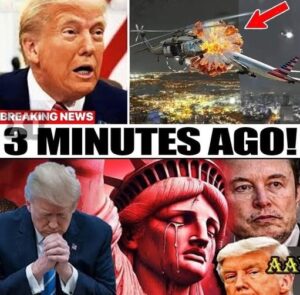ALERT: Executive Order Sparks Controversy as Trump Targets Foreign Protesters Amid Anti-Semitism Crackdown

The United States has been placed on high alert following the signing of a new executive order by former President Donald Trump, a move that is drawing intense scrutiny both domestically and abroad. The order, framed as part of a broader strategy to counter rising anti-Semitism, introduces sweeping changes in federal policy — especially in regard to foreign nationals involved in pro-Palestinian demonstrations.
According to official documents released by the Department of Justice, the executive order could lead to the deportation of foreign students and non-citizens who are found participating in protests deemed to incite hatred or unrest. This development follows weeks of escalating tensions on college campuses and in major U.S. cities, where demonstrations surrounding the Israel-Palestine conflict have surged.
What the Executive Order Entails
The order directs federal agencies — including the Department of Homeland Security and Immigration and Customs Enforcement (ICE) — to review and potentially revoke visas of non-citizen individuals suspected of engaging in activities that the administration classifies as promoting anti-Semitism or endangering public safety. The policy also authorizes law enforcement to monitor protest activity more closely and accelerate deportation proceedings in certain cases.
A brief released alongside the order explains that these actions are being taken to “protect Jewish communities and institutions” from what the administration sees as a disturbing rise in targeted hostility.
“We will not tolerate hatred on American soil — not from anyone, including those here on temporary grounds,” the statement reads.
Public Backlash and Legal Concerns
The executive order has sparked widespread outrage among civil rights groups, immigration advocates, and legal scholars. Critics argue that the policy could have a chilling effect on freedom of speech and disproportionately affect international students who are lawfully exercising their right to protest.
Several universities have already reported confusion and concern among their foreign student populations, with some students reportedly withdrawing from planned demonstrations out of fear of legal repercussions.
“This order is dangerously vague,” said Professor Amelia Ruiz, a constitutional law expert at Georgetown University. “It conflates political speech with hate speech and opens the door for discriminatory enforcement.”

Prophecy or Politics?
Adding to the drama, social media has been ablaze with commentary suggesting that this move may be part of a larger ideological or even prophetic narrative. Some fringe voices claim that the crackdown aligns with so-called “end-times” prophecies, further fueling the public anxiety already heightened by weeks of unrest.
While mainstream analysts caution against linking executive action to religious or prophetic interpretations, the timing of this order — amid ongoing international conflict and campus protests — has only deepened the sense of national tension.
As legal challenges are likely to emerge in the coming weeks, and as government agencies begin to implement enforcement actions, the full impact of this controversial policy remains to be seen. What is clear, however, is that the United States is entering a volatile moment — one in which immigration, civil liberties, and international politics are colliding with renewed force.